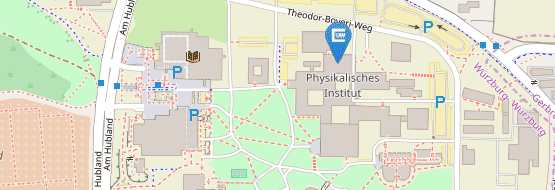Program Structure & Courses
The program Quantum Engineering with the degree "Master of Science" has a standard study period of four semesters, during which a total of 120 ECTS credits must be earned. In the subarea of Physics, modules with graded examinations amounting to at least 40 ECTS points must have been successfully completed.
Everything that has the abbreviation min. indicates the minimum number of ECTS points that must be collected in this area.
Course Work (req. 60 ECTS)
Selected freely by each student from the course catalogue as per the scheme:
Special topic seminars (5 to 10 ECTS)
Advanced Laboratory courses (9 to 12 ECTS)
Specialization courses in Quantum Engineering
Optional courses outside of specialization (0 to 5 ECTS)
Masters research project (60 ECTS)
A one year integrated project within one of the research teams in the faculty. Formally comprised of 3 units defining different learning goals, but united into a single well rounded research topic.
- Communication: Specialization Quantum Engineering (Talk + Discussion, 15 ECTS)
- Organization: Scientific Methods and Project Management Quantum Engineering (15 ECTS)
- Research: Master Thesis Quantum Engineering (30 ECTS)
Example of Study Plan
1st Semester | Optical Properties of Semiconductor Nanostructures (6 ECTS) | Topological Effects in Solid State Physics (8 ECTS) | Semiconductor Physics (6 ECTS) | Spintronics (6 ECTS) |
Semesterbreak | Advanced Laboratory Course (1st module, 3 ECTS) | Advanced Laboratory Course (2nd module, 3 ECTS) | ||
2nd Semester | Advanced Seminar (5 ECTS) | Phenomenology and Theory of Superconductivity (6 ECTS) | Solid State Physics 2 (8 ECTS) | Image and Signal Processing in Physics (6 ECTS) |
Semesterbreak | Advanced Laboratory Course (3rd module, 3 ECTS) | |||
3rd + 4th Semester | Professional Specialization (15 ECTS) | Scientific Methods and Project Management (60 ECTS) | Master Thesis (30 ECTS) |
Courses
Modules / Courses in the elective Section / field can be choosen out of a big variety of research-oriented modules of the faculty's reseach focus, e.g.


